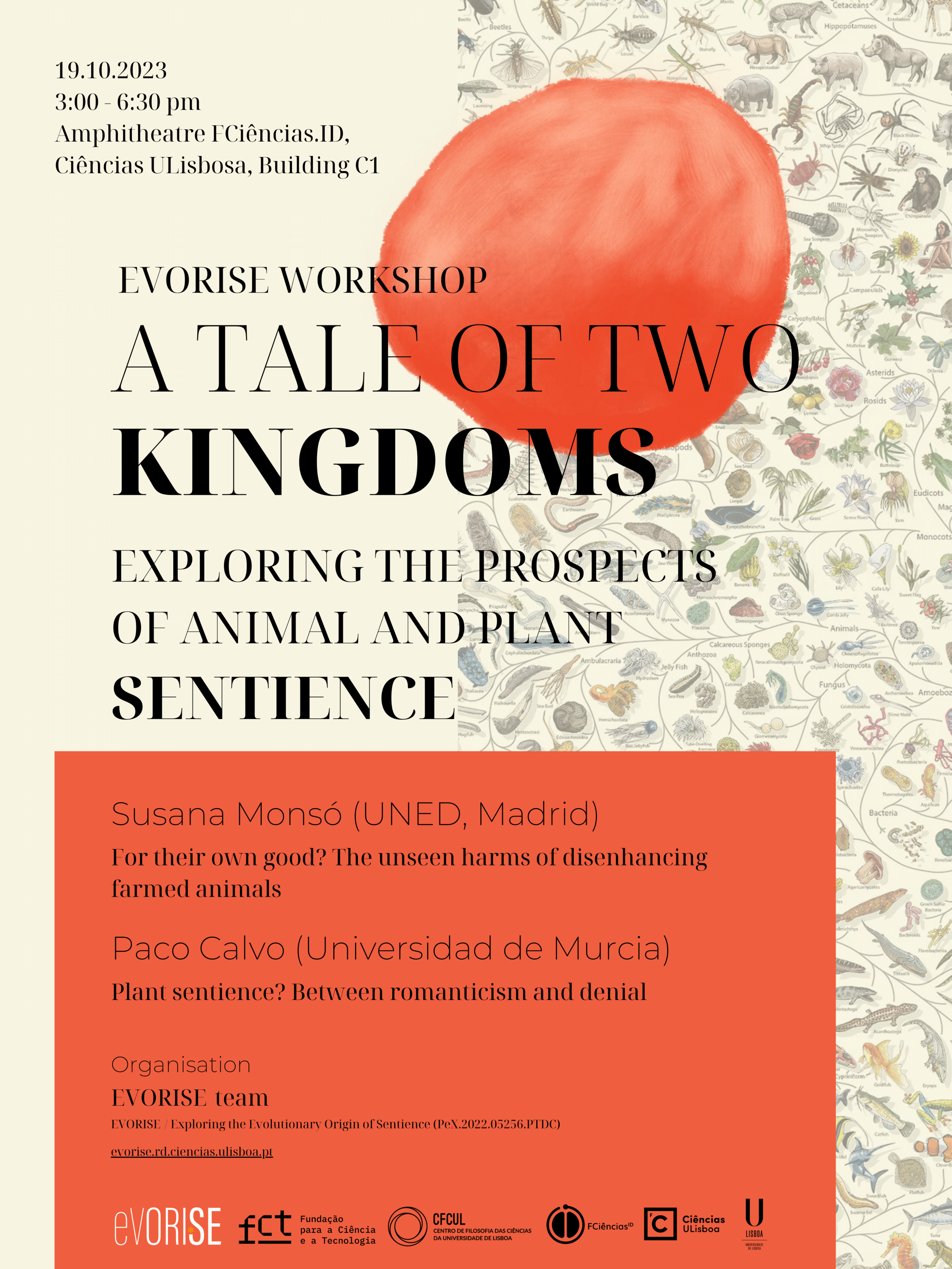
DEVIDO ÀS CONDIÇÕES METEREOLÓGICAS, O WORKSHOP IRÁ DECORRER EXCLUSIVAMENTE ONLINE
Due to the weather conditions, the workshop will be online only
The aim of this workshop is to explore some of the ethical and theoretical issues emerging from cutting-edge animal and plant research on sentience. The evolutionary origin of sentience is a foundational problem in biology. Moreover, identifying lineages with sentience capacities is fundamental for animal welfare. A noticeable trend stemming from contemporary biological research concerns the widening of sentience ascription beyond vertebrates. In this context, should we rethink our farming practices? Should we question our zoo-centric biases when investigating sentience? The workshop features two talks by internationally recognized researchers. It will be of special interest to students and researchers interested in the bioethical and biological dimensions of sentience research.
Programme
15:00-15:10 Introduction
15:10-16:40 Susana Monsó “For their own good? The unseen harms of disenhancing farmed animals)
16:40-17:00 Coffee break
17:00-18:30 Miguel Segundo-Ortin “The philosophy of plant cognition and sentience” [online]
SUSANA MONSÓ (UNED, Madrid) (joint paper with Sara Hintze)
For their own good? The unseen harms of disenhancing farmed animals
In recent years, some ethicists have defended that we should genetically engineer farmed animals to diminish or eliminate their capacity to experience negative affective states, a process known as disenhancement that would allegedly result in a situation that is better than the status quo. While we agree with this overall assessment, we believe that it is a mistake to defend disenhancement as a good solution to farmed animals’ plight. This is because disenhancement entails some generally unseen harms that arise from the fact that negative affective states, despite feeling bad, support access to a number of intrinsic goods, such as individuality, social relationships, meaning, and political participation. Though farmed animals currently have few opportunities to enjoy these goods, we argue that this is a reason to change the environment in which they are kept, not the animals. If we truly care about improving farmed animals’ lives, we should aim to enrich their environment, rather than impoverish their mental lives.
MIGUEL SEGUNDO-ORTIN (Universidad de Murcia) (joint paper with Paco Calvo) [online]
The philosophy of plant cognition and sentience
A growing number of non-human animal species are being recognized as potential candidates for sentience. However, plants are often overlooked or deliberately excluded from these discussions. This oversight stems from the perception that plant behavior is hardwired and inflexible, coupled with an underestimation of the significance of plant electrophysiology. I shall challenge these assumptions by presenting evidence that suggests it might be time to seriously consider the possibility of sentience in plants. My presentation aims to encourage rigorous investigation into plant sentience, mirroring the scrutiny given to non-human animals.
Zoom
https://videoconf-colibri.zoom.us/j/91791862765?pwd=NU50MzFJUzUxWStxVnJCdnhVVkdzQT09
Password: 755188
Workshop do projecto EVORISE – Exploring the evolutionary origin of sentience (I.P. Davide Vecchi, CFCUL/GI3)